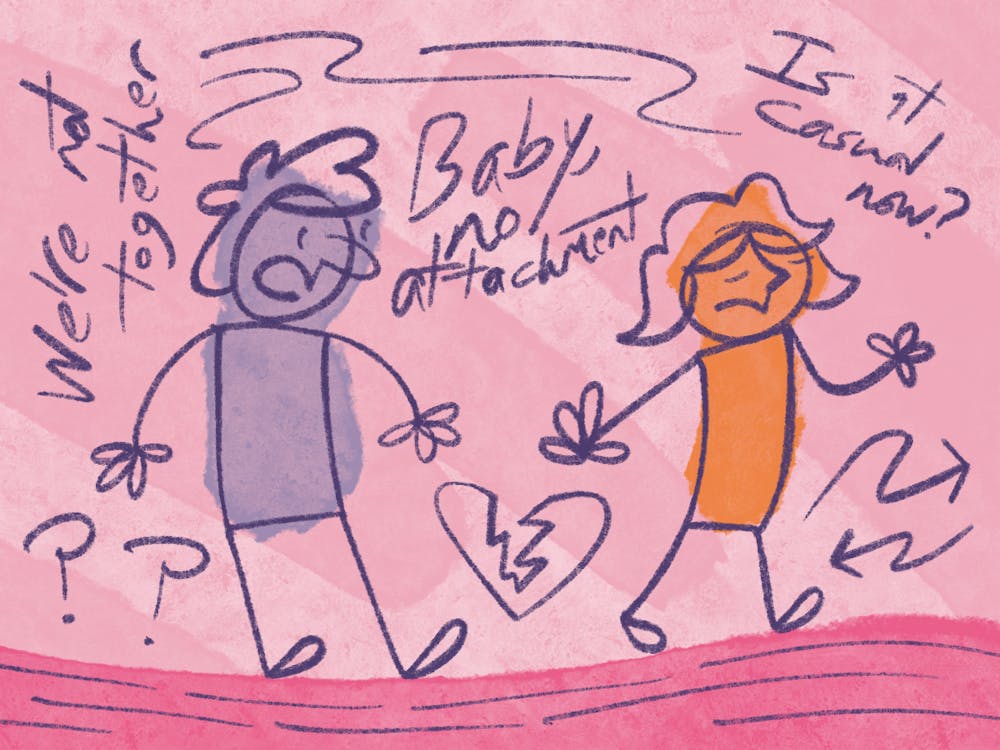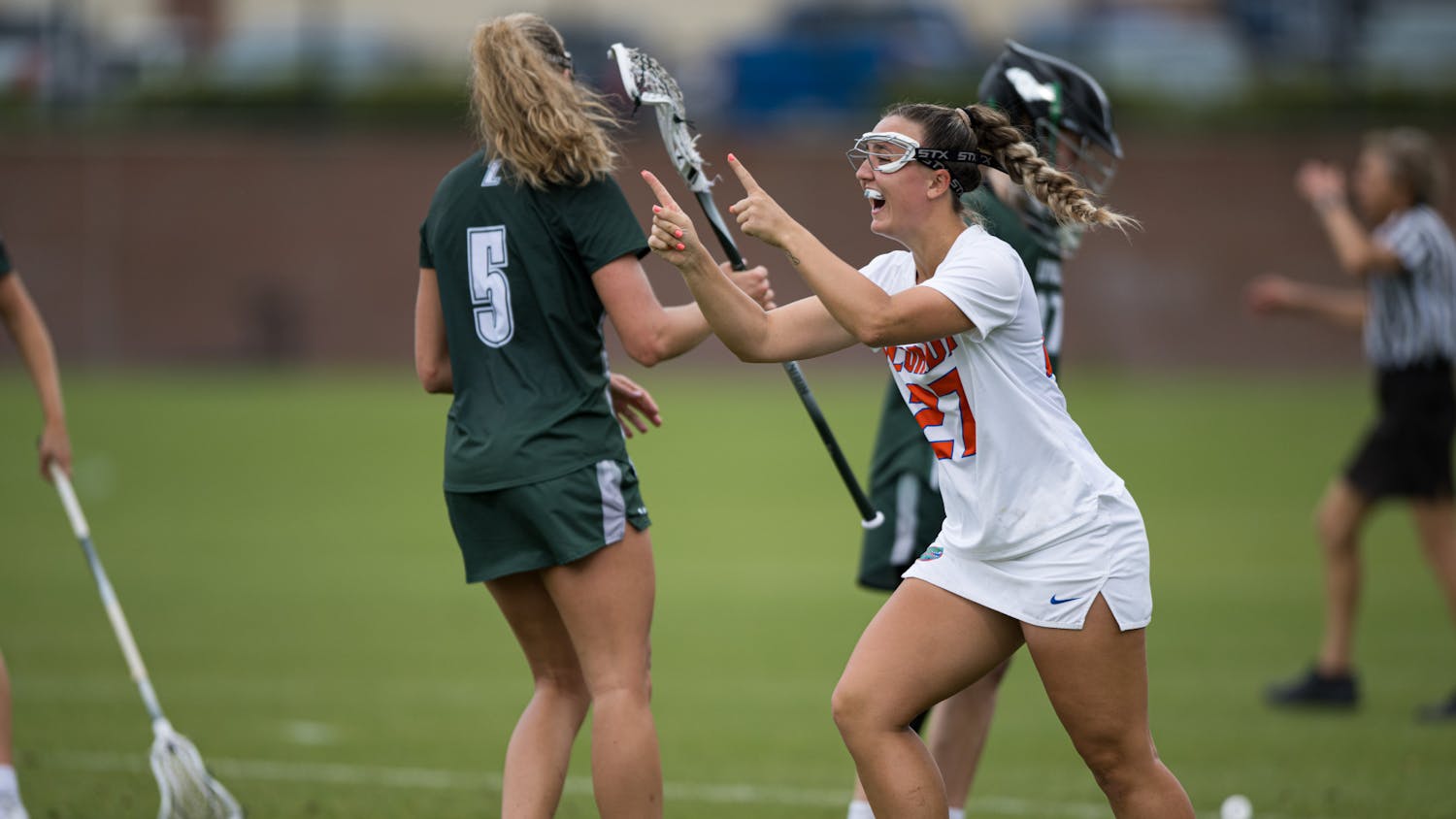“‘You’re so funny.’ Thanks, I fell in love with my 2-week situationship and it took me a year to move on,” an Instagram post read. That’s just one of the nearly 500,000 posts tagged ‘#situationships’ on Instagram. From not wanting anything serious to “Let’s just play it by ear,” social media algorithms have all the excuses as to why someone might not want to commit to a relationship just yet.
Situationships are situations that resemble a relationship in some ways, but they lack clear boundaries, commitment and, most of all, labels. Surveys show that 50% of American adults aged 18 to 34 have been in a situationship at least once. Recovering from a relationship with no strings attached, many members of Generation Z are left wondering if their talking stages could have been taken to the next level.
Sincerity and vulnerability are two desired features of a relationship, but a situationship tends to be the opposite. Members of these almost-relationships might not reveal every piece of their true personality, leaving the rest up to their partner’s imagination.
So, what if they’re a perfect fit for their potential partner? They’ll never know. It’s already over with zero closure.
Alexandra Gonzalez, a 21-year-old recent UF graduate, encountered this phenomenon in her first romantic experience. Characterized by ambiguity and mixed signals, Gonzalez said her close friendship became a situationship that slowly “puttered out” over time.
In an official breakup, there’s a label and a conversation. Instead, she said her situationship was filled with uncertainty, leading her to second-guess her value in the other person’s life. Gonzalez fell in love with the relationship’s potential, wanting the relationship more than the person, she said.
She found the ending of her situationship to be more painful than her future breakups. She said she believes the catalyst for situationships in younger generations is their limited understanding of boundaries and toxicity — both of which are glorified by the media. Chappell Roan’s song, “Casual,” which was written about a situationship, gives her the words to describe such a “weird place to be in,” she said.
“Even trying to tell yourself, ‘It’s casual,’ like I was doing, it doesn’t make it hurt any less,” Gonzalez said.
Victor Harris, a UF professor in the Department of Family, Youth and Community Sciences, spent a good portion of his life studying close relationships. Developing a sense of trust and intimacy with your partner is essential for a healthy relationship, which situationships often don’t include, he said. Without clear communication, one person between the two might want to commit more to the situationship, he said.
“The person that cares the most has the least power and gets hurt the most in a relationship,” Harris said. “If you’re involved in a series of situationships, you’re going to be more fearful because of your past experiences about committing, about being vulnerable [and] about doing all those things that build trust.”
For long-term relationships, Harris said the No. 1 predictor of whether couples stay together is commitment. Due to rising divorce rates and negative relationship stories swarming social media, Gen Z fears that dating won’t work out. But their longing to be with another person doesn’t just go away.
While situationships can have a negative emotional effect, Harris said they push marriage to take place later in life rather than in young adulthood. This allows for healthier, more mature relationships where people can make better decisions, he said.
Brooks Chandler, an 18-year-old UF computer engineering sophomore, navigated a yearlong situationship that he said left a lasting impact on his personal growth. What began as a friendship left Chandler feeling too emotionally immature to properly communicate.
His views on loving other people despite not having clarity or commitment were changed after another situationship, he said. Chandler romanticized his connection’s humor and pushed himself to get to know him–– but ultimately found the connection lacked compatibility.
“It definitely improved my standards when it comes to potential relationships,” Chandler said. “It made me learn that I need to be clear with what I want in a relationship [and] my expectations.”
Chandler said he wanted his situationship to become something more. He later realized he couldn’t be with someone who needed to work on their insecurities.
Even amid undefined heartbreak, Gen Z is redefining what a relationship can be. In Tinder’s 2023 Future of Dating Report, the ambiguity of situationships is used to prioritize personal growth and genuine connection rather than fulfilling conventional relationship norms. While situationships do not offer clarity most of the time, they give Gen Z a place to explore what love truly means without labels.
Harris said he believes Gen Z needs to quit putting pressure on themselves to find a partner and instead cultivate deeper, meaningful friendships, not just surface-level connections.
Only then can they reflect and figure out what they want out of a romantic relationship, Harris said.
“If you’re looking for something that’s deeper, you need to look for someone that cares about your opinions and thoughts and where you’re going,” he said. “It really depends on what you’re looking for.”
Contact Autumn Johnstone at ajohnstone@alligator.org. Follow them on X @AutumnJ922.
Autumn Johnstone is a freshman journalism/art student and a music reporter for The Avenue. When they're not writing, you can find them enjoying a nice cup of coffee at a nearby café or thrifting for vinyls.






